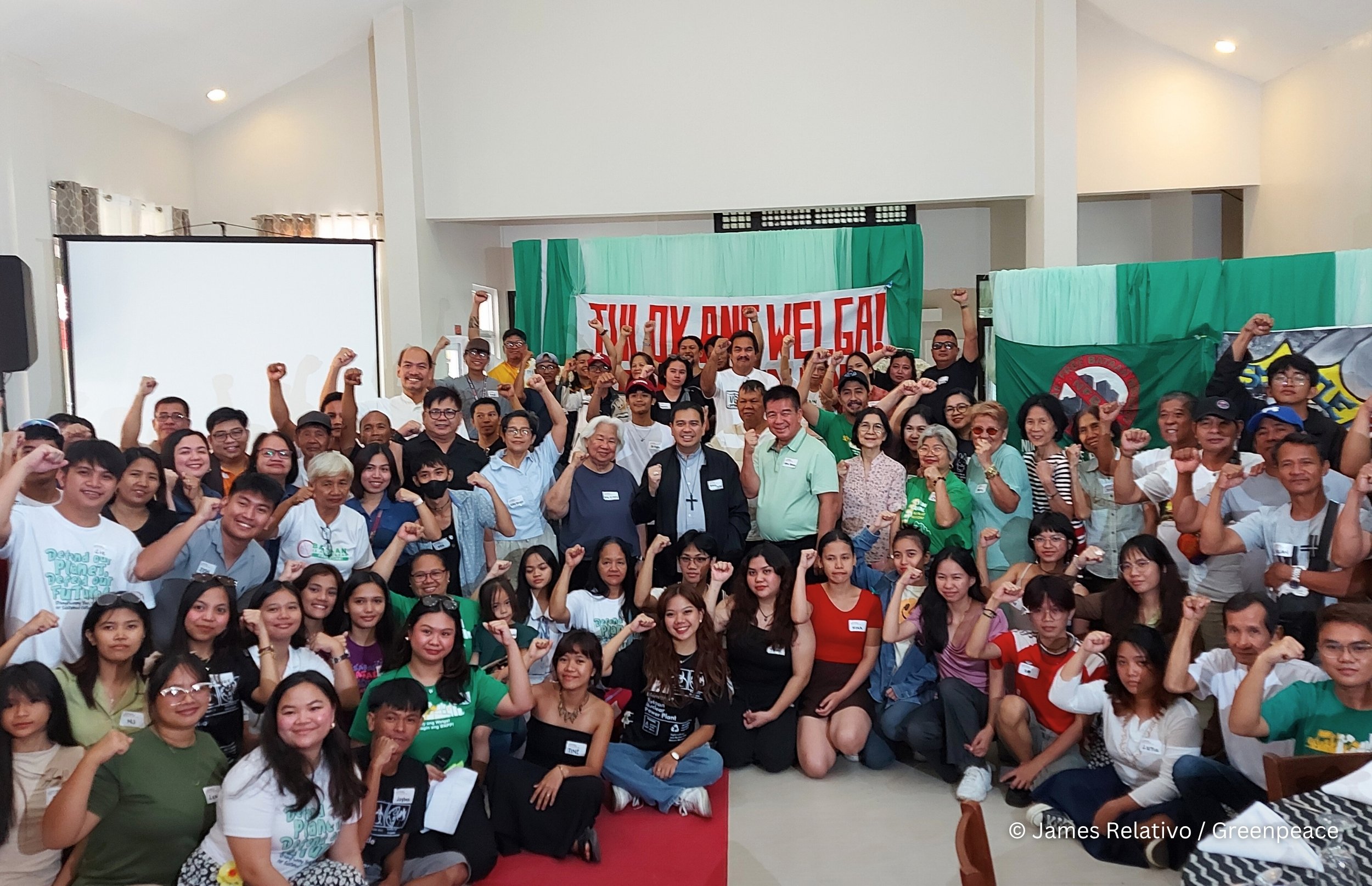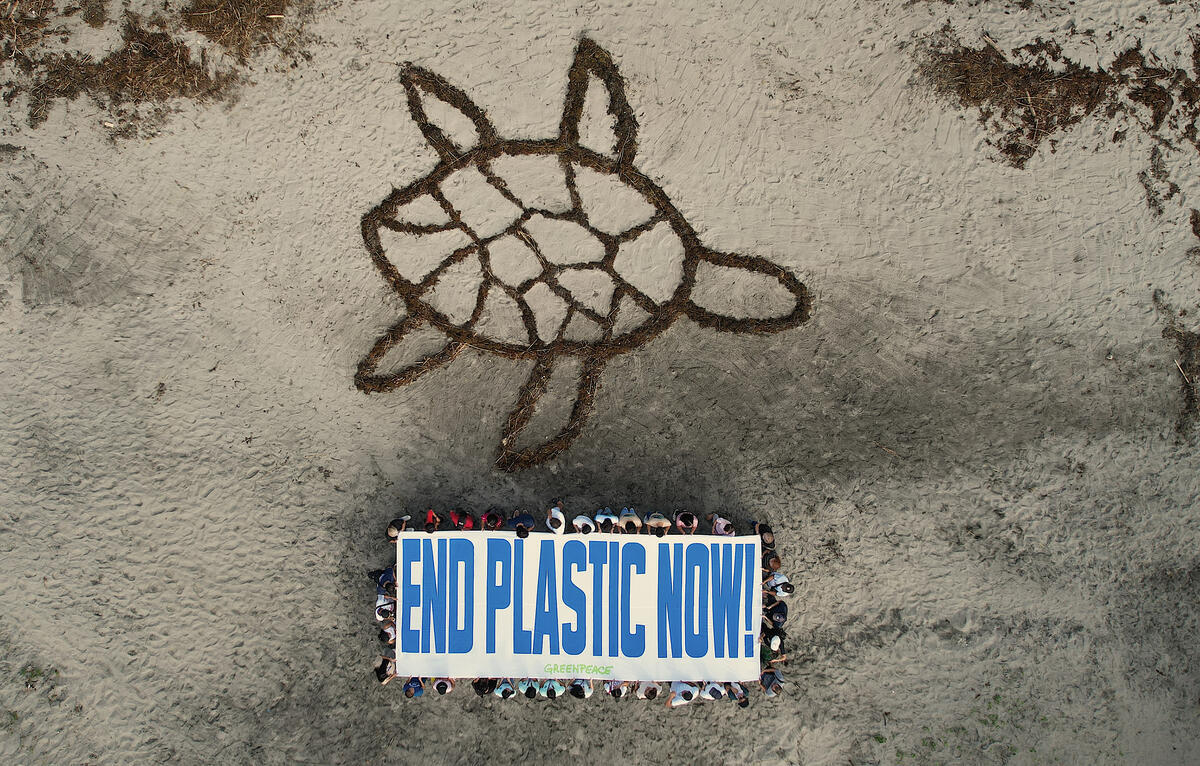It has been over two months since the devastating oil spill off the waters of Oriental Mindoro, affecting thousands of people and blanketing hundreds of kilometers of shoreline with thick black sludge. Response has been agonizingly slow from the government, but even more glaring is the near-complete invisibility of those truly responsible for this catastrophe: RDC Reield Marine Services, SL Harbour Bulk Terminal Corporation, and by extension, San Miguel Shipping and Lighterage Corporation.
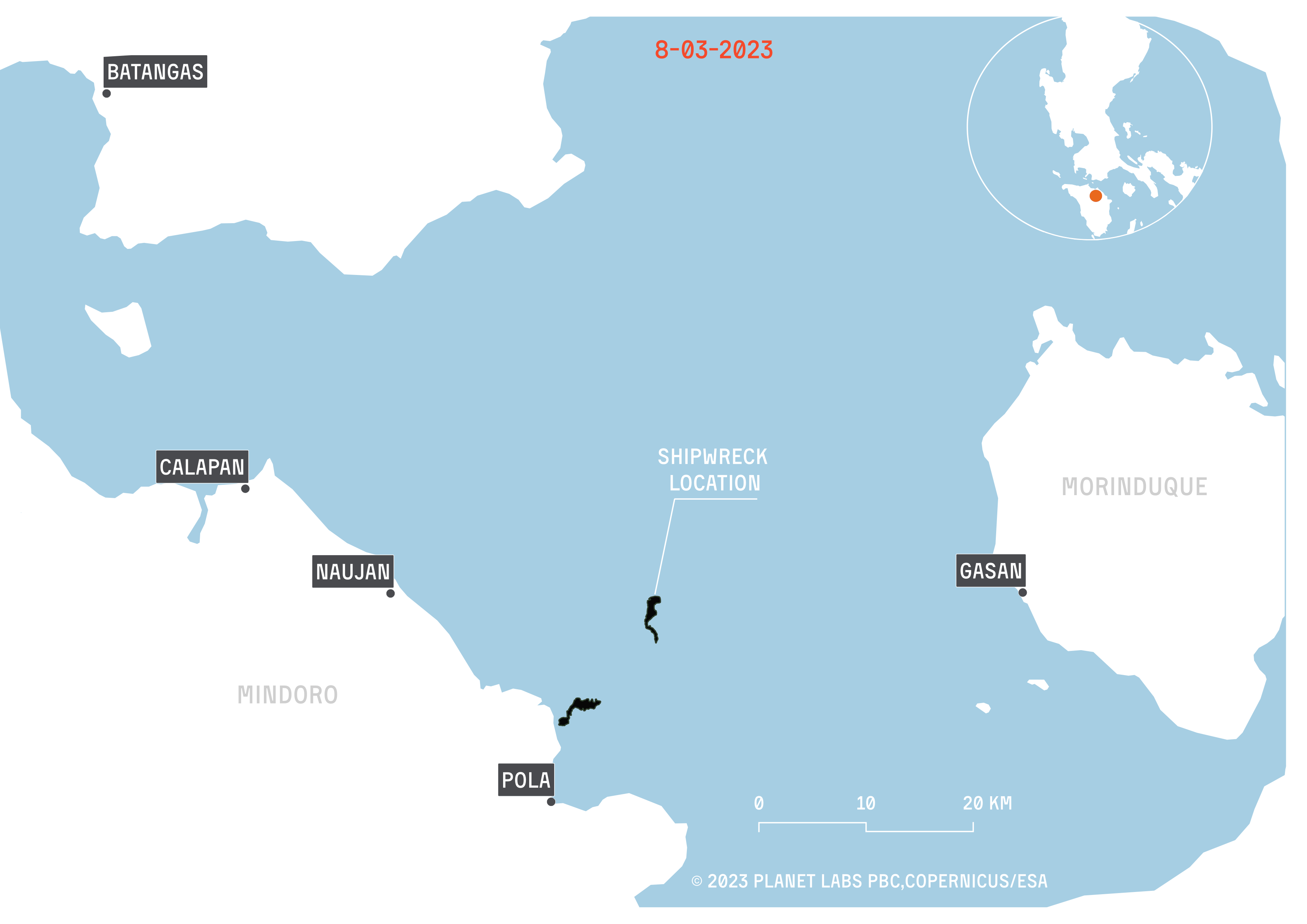
While much has already been said about the systemic failure of national government agencies to be on top of the spill, the multiple layers of due diligence failures by the companies involved not only demand speeding up the investigations into the matter, but more importantly, drive the point home that the industry as a whole depends on a dangerous business model that makes fools out of the government and the public. Here are the facts:
First, we know through the bombshell Senate Inquiry that RDC was still in the process of amending their Certificate of Public Convenience with Marina, and that the Philippine Coast Guard made lapses in their inspection, allowing the ship to make its fateful voyage. The public is left wondering how large this lack of regulation is, which engenders a culture of impunity on the part of shipping companies.
This shouldn’t happen, given the obvious fact that the country should have better maritime regulations because of our reliance on our seas. 90% of our trade goes through our seas, equating to anywhere between USD 2.28 – 4.8 billion worth of services in exports and imports back in 2017. The fisheries sector likewise contributes 1.52% of the total GDP as of 2021. It is simply unacceptable that government regulations still languish in the dark ages while companies capitalize on these gaps and run their business operations unabated and without liability.
Second, the ill-fated ship, M/T Princess Empress, traversed the sea 17-20 times from the time it was constructed all the way to its sinking, according to allegations by the Philippine Coast Guard. Filipinos have gotten used to lax regulations, but the audible gasps in the Senate Inquiry and the verbal fumbling of both Marina and PCG in the House of Representatives hearing last 9 May when this was exposed spoke volumes to the wanton disregard for the rule of law on the part of RDC. It was unfortunate yet expected that RDC was bound by a Non-Disclosure Agreement, insulating from the fury of the senators and the congresspeople the real villain: The charterer.
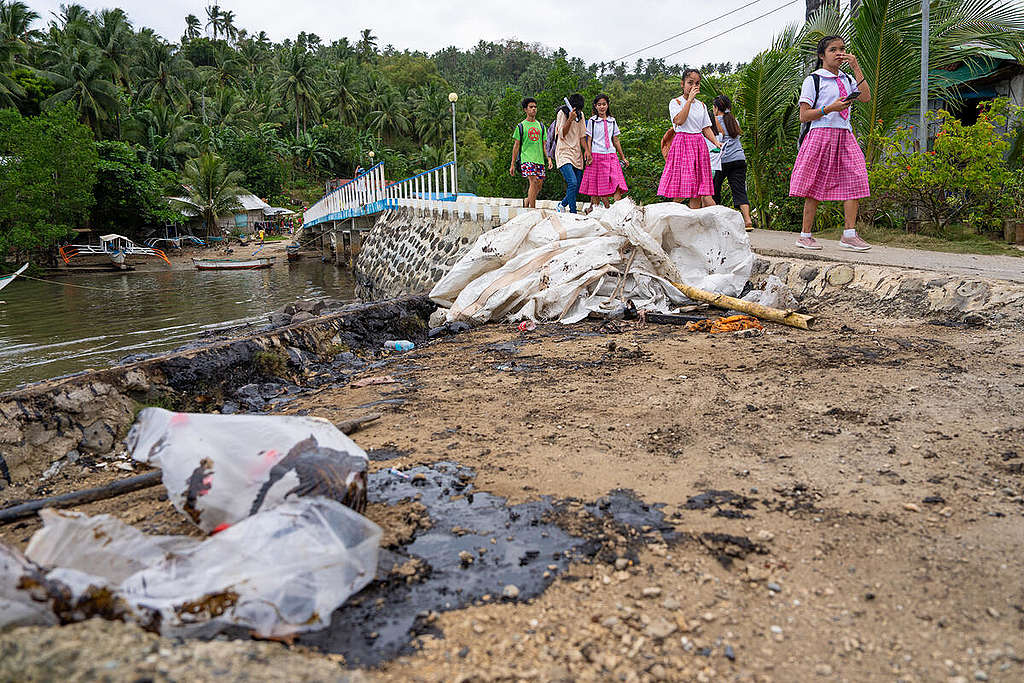
Third, like a well-made political thriller, it was revealed a few days later by Justice Secretary Boying Remulla that a witness came forward saying that RDC actually operated a 20-year old ship, and had it refurbished for transporting hazardous cargo such as oil. Rightly, this has initiated an official inquiry by the Department of Justice on potential criminal liabilities. In the most recent committee hearing in the House of Representatives, the Department of Justice has indicated that “in two weeks’ time” appropriate cases will be filed. Insulated – this time by law, by virtue of the Oil Pollution Compensation Act of 2007 – from all the finger-pointing and potential reparations are the charterers of the vessel.
This stands in stark contrast against the experience of Guimaras during their oil spill disaster back in 2006, where Petron Corporation was outed as the charterer and was made to pay compensations, which turned out to be inadequate, resulting in a class suit filed against them in 2012. In many ways the Guimaras spill set a lot of precedents in addressing oil pollution, most notably the passage of the 2007 law. Bizarrely, it also set the precedent that charterers can and will be insulated from reparations. One would be forgiven to think that some interests are being protected by the government. Now, it is perfectly legal to be anonymous, despite not running the gauntlet, even though the rules and regulations exist to ensure that their business operations do not harm people and the environment.
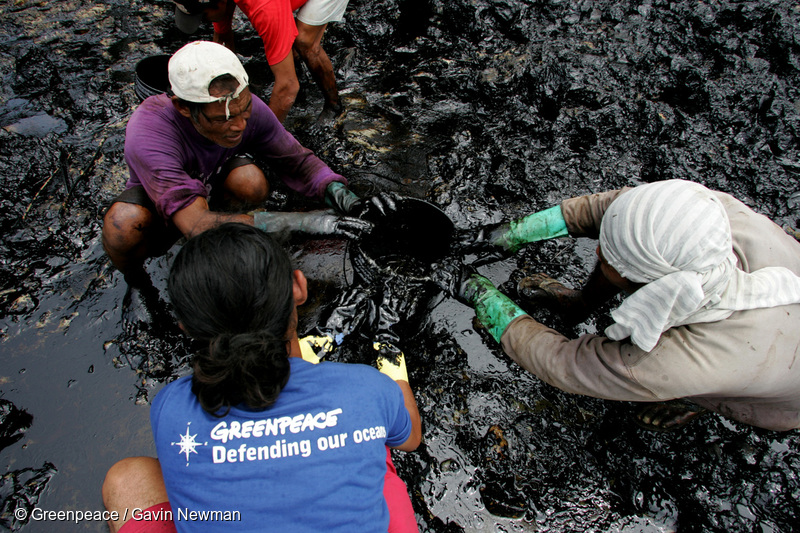
The oil spilled from the tanker Solar 1 which sank in heavy seas off the Philippines on 11th August 2006. The vessel was chartered by Petron, the largest oil company in the Philippines and was carrying 2 million litres of Bunker Oil.
It is quickly becoming apparent that RDC is a mere sacrificial lamb, meant to shield the real perpetrators for their gross negligence and omission of due diligence, because that is what these companies are after: pure profit. It has to be said that San Miguel Corporation netted an eye-watering PHP 1.5 trillion in revenues, 60% higher than the previous year. Even a billion pesos to cover for reparations are but a drop in the oil-infested waters of Oriental Mindoro.
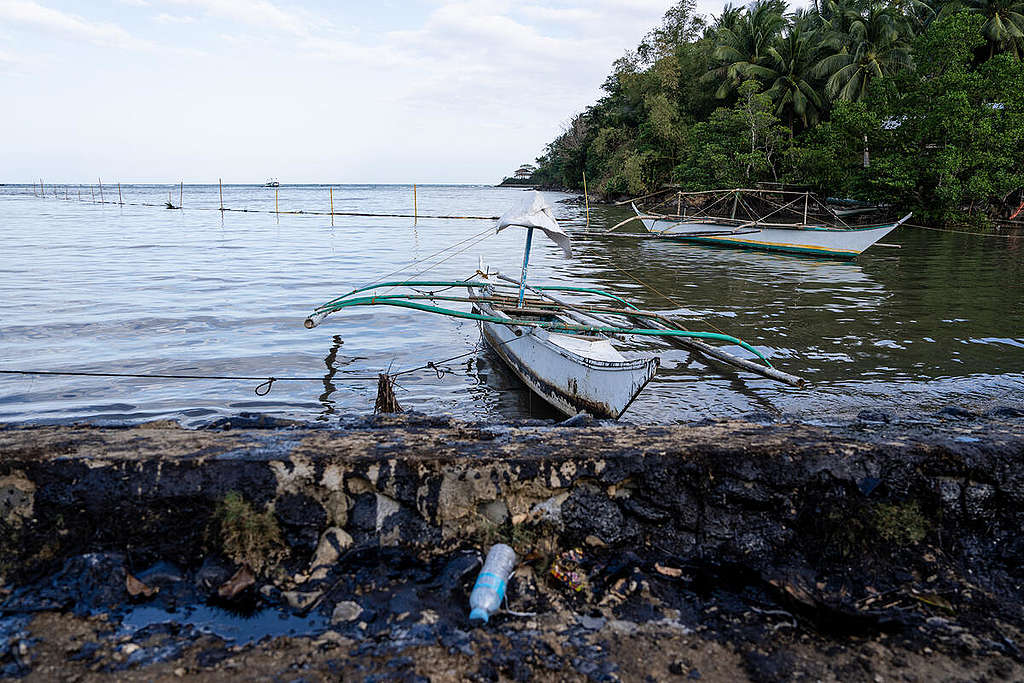
Corporations that operate with impunity make a mockery of our government, because it is an easy target. With the sheer number of gaps in law enforcement, regulation, and legislation, what is just one more gap, another chink in the armor? It is easy to hide when there is so much to criticize, and so many people to blame; and there is much to blame: the failures of government agencies, the lack of leadership, the slow response, and the general lack of interest in pursuing polluters. These are convenient targets that hide the real culprits behind financial statements, false promises of sustainability, and the right to conduct business.
All these suggest a disturbing pattern by companies in the fossil fuel business: a model prioritizing growth over everything else – and when things go south, passing the blame onto contractors, the public, the government, the law, and even acts of God. It should be a basic requirement that businesses, at the very least, pursue due diligence in ensuring that their operations do not directly threaten the rights of people, especially the most vulnerable.
The ongoing oil spill is a perfect demonstration of this failure of due diligence and the lengths that the companies behind this disaster are willing to take to preserve their profits and reputation. At the same time, this spill is a mere synecdoche of the decades of deceit of the industry, who have gotten used to the fact that the loss of the rights to a balanced and healthful ecology are a mere cost of doing business.
Oil spills can never be cleaned up; they fester and stay for decades, slowly degrading the area around them. So, too, with the fossil fuel industry: a slow-acting poison that takes its time, weakening us until we are unable to fight it off. Unless we wean off their business, we will continue to fall, we will continue to die. The government must soldier on with their investigations, lest we allow this unmitigated disaster, like the Semirara spill, the Guimaras spill, the Cavite spill, among a host of other calamities, to slip into oblivion. The government must demonstrate its power, and, more importantly, its allegiance to the Filipino people, by resuming its inquiry and persevering to conclude it. This is the most concrete first step in challenging the far-reaching corporate influence not only in government, but also in our daily lives.

![[Blog] WHEN THE TIDE BECOMES THE TEACHER](https://www.greenpeace.org/static/planet4-philippines-stateless/2025/06/95c8411e-9a04f785-4293-46a6-a6cf-425f0a384682.jpg)
